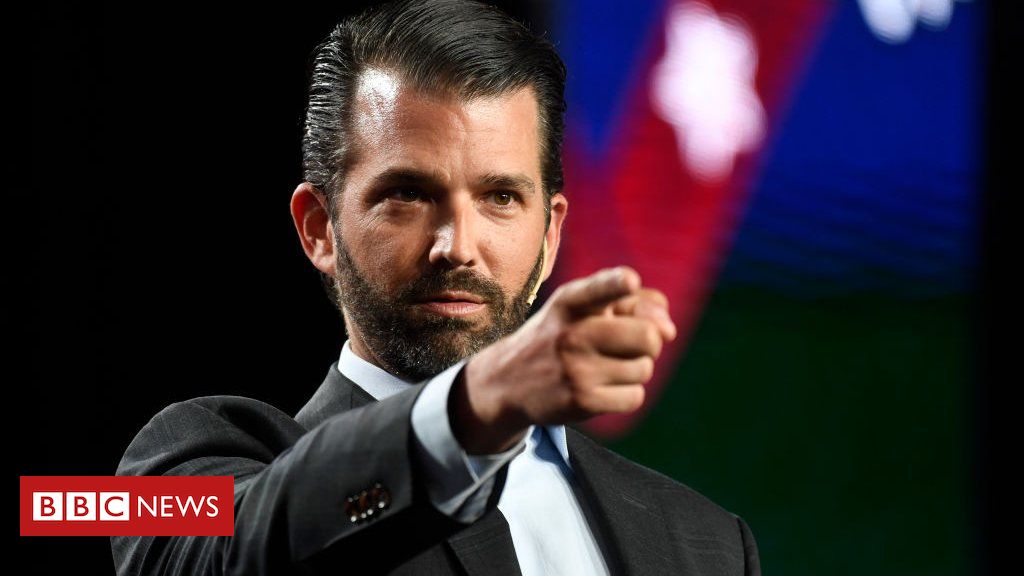When it comes to understanding the complex personality of Donald Trump, the Myers-Briggs Type Indicator (MBTI) offers a fascinating lens. The MBTI is a tool that categorizes individuals into 16 distinct personality types based on their preferences in four dichotomies: Introversion vs. Extraversion, Sensing vs. Intuition, Thinking vs. Feeling, and Judging vs. Perceiving. By analyzing Trump's behaviors, decisions, and communication style, we can glean insights into what makes him tick and how his personality may have influenced his approach to leadership and public life.
In this exploration of Donald Trump's MBTI, we will delve into his biography, his potential personality type, and how that type manifests in his actions and rhetoric. Understanding Trump's MBTI not only enriches our grasp of his character but also highlights the broader implications of personality in politics and leadership. With a polarizing figure like Trump, the MBTI framework can serve as a useful tool to navigate the complexities of his persona.
As we dissect the various aspects of Trump's personality, we will also consider how his MBTI type aligns with his public persona and the reactions he elicits from both supporters and critics. Whether you are a fan of Trump or hold an opposing view, understanding his MBTI can provide valuable context for his behavior and decision-making processes throughout his career.
Read also:5th 3rd Bank A Comprehensive Guide To Financial Services And Solutions
What is Donald Trump’s Biography?
Donald John Trump was born on June 14, 1946, in Queens, New York City. He grew up in a wealthy family and attended Fordham University before transferring to the Wharton School of the University of Pennsylvania, where he earned a degree in economics. After college, Trump joined his father’s real estate business, eventually taking over and expanding it into a global brand. His foray into television with "The Apprentice" further solidified his celebrity status, leading to his election as the 45th President of the United States in 2016.
| Personal Details | Bio Data |
|---|---|
| Name | Donald John Trump |
| Date of Birth | June 14, 1946 |
| Place of Birth | Queens, New York City, USA |
| Education | Wharton School of the University of Pennsylvania |
| Occupation | Businessman, Television Personality, Politician |
| Political Party | Republican |
| Years Active | 1971 - Present |
What is Donald Trump’s MBTI Type?
While there is no official MBTI assessment for Donald Trump, many experts in personality psychology speculate that he aligns closely with the ESTP type, which stands for Extraverted, Sensing, Thinking, and Perceiving. This personality type is characterized by an energetic and action-oriented approach to life, often thriving in high-stakes environments. ESTPs are known for their practicality, decisiveness, and ability to think on their feet, all traits that Trump has exhibited throughout his career.
How Does Trump’s Extraversion Shape His Public Persona?
As an Extravert, Trump draws energy from social interactions and public appearances. His charisma and boldness in front of crowds have been pivotal to his political success. This trait allows him to connect with his supporters and communicate his messages effectively, even when they are controversial. The Extraverted nature of Trump has also led to a notable presence on social media, where he frequently engages with followers and the media alike.
What Role Does Sensing Play in Trump’s Decision-Making?
Trump’s Sensing preference suggests that he focuses on concrete facts and immediate realities rather than abstract theories or future possibilities. This approach is evident in his straightforward communication style, which resonates with many of his supporters. By emphasizing tangible results and practical solutions, Trump has positioned himself as a doer rather than a thinker, which appeals to voters looking for decisive leadership.
How Does Trump’s Thinking Preference Influence His Leadership Style?
The Thinking aspect of Trump's personality indicates that he prioritizes logic and objectivity over emotional considerations when making decisions. This can be both a strength and a weakness. On one hand, it allows him to make bold decisions without being swayed by sentiment; on the other, it can lead to a lack of empathy in certain situations, which has drawn criticism from opponents. Trump's approach to leadership, therefore, is often marked by a focus on results, sometimes at the expense of interpersonal relationships.
In What Ways Does Trump’s Perceiving Nature Affect His Flexibility?
With a Perceiving preference, Trump tends to be spontaneous and adaptable, often opting for a more flexible approach to his plans. This trait is evident in his willingness to change course based on the immediate circumstances, a characteristic that has both surprised and frustrated political analysts. His ability to pivot quickly in response to new information or changing public sentiment has been a defining feature of his political strategy.
Read also:The Power Of The Computer Switch Enhancing Connectivity And Functionality
What Are the Implications of Trump’s MBTI Type in Politics?
Understanding Donald Trump's MBTI can provide insights into his political strategies and interactions with others. For instance, the ESTP type often thrives in environments that involve competition and risk, making Trump well-suited for the high-stakes world of politics. Additionally, his personality type may affect how he handles criticism and opposition, often responding with assertiveness and a refusal to back down.
How Can Trump’s MBTI Type Help Us Understand His Supporters?
Many of Trump’s supporters may also identify with certain traits typical of the ESTP type, such as a preference for direct communication and a focus on immediate, tangible results. This shared personality framework can create a strong sense of connection between Trump and his base, as they resonate with his no-nonsense approach to leadership and his ability to articulate their frustrations and desires.
What Can We Learn from Donald Trump's MBTI Analysis?
Analyzing Donald Trump's MBTI type allows us to better understand the complexities of his personality and how it has shaped his career. While personality assessments are not definitive, they can offer valuable insights into an individual's behavior, motivations, and leadership style. For Trump, his ESTP traits have played a significant role in his approach to politics, business, and public life.
In conclusion, exploring Donald Trump's MBTI type provides an intriguing glimpse into his persona and the factors that have contributed to his rise in politics. Understanding his personality can enhance our comprehension of his actions and decisions, highlighting the interplay between personality and leadership in the dynamic world of politics.


